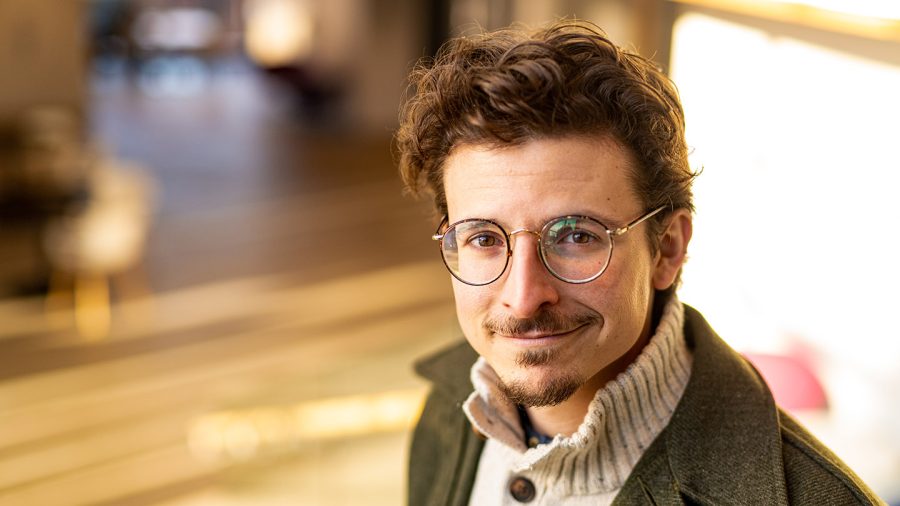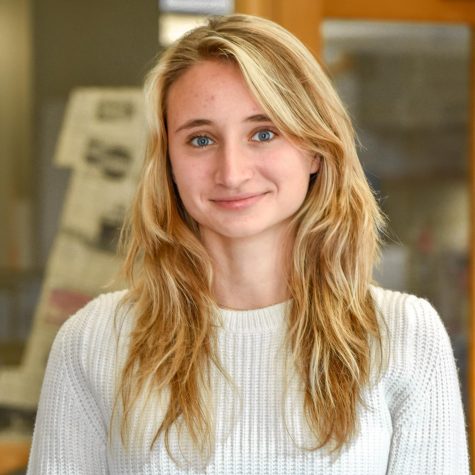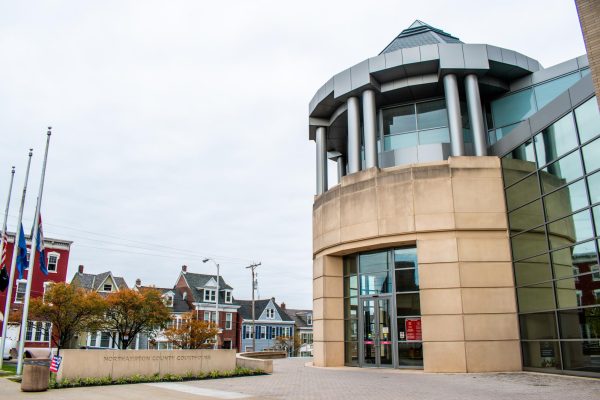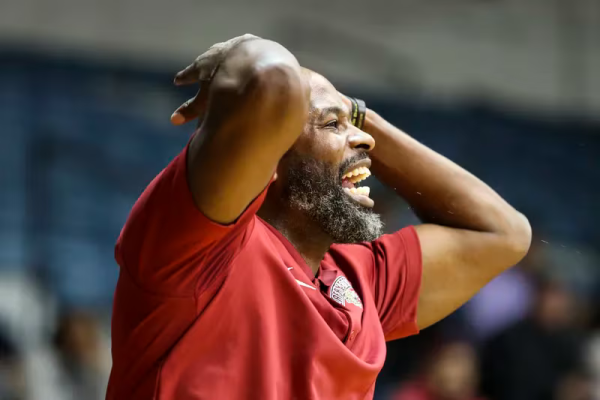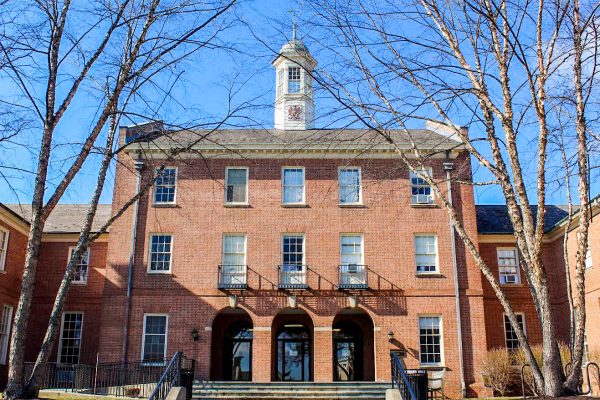A conversation with new Manager of Food and Farm Josh Parr
Josh Parr began at Lafayette three weeks ago at the start of the new semester. (Photo courtesy Lafayette Communications)
February 11, 2022
Students passing LaFarm on any given day may come across Josh Parr, the new manager of food and farm, planting seeds to prepare for the upcoming season. Parr is joining the community this semester after Lisa Miskelly left the college last fall. Originally from Massachusetts, Parr studied classics as an undergraduate and master’s student. He began a Ph.D. at the University of Pennsylvania before realizing his passions were in food and the way it ties into social, cultural and environmental issues. He wanted to work more directly in things that he felt were pressing needs in our world, leading him to volunteer and later manage a farm in Philadelphia before coming to Lafayette.
The Lafayette: What made you want to come to Lafayette?
Josh Parr: I was very excited about this job when I saw it posted. I obviously care a lot about farming, that’s kind of my career path. I think of it as my calling, but I also have a love for higher education. My time in college was very important and formative to me and I really believe in the value of a liberal arts education in terms of forming good citizens and broadening people’s worldviews. When I was in doing my master’s in Kansas, I taught some college-level courses and my favorite part of doing my master’s was working with the college students. I think there is a passion and energy that college students have that usually no one else has at any stage of life; I find that to be really infectious and great to be around, and I found that to be true here.
TL: What do you believe you bring to Lafayette College as the new food and farm director?
JP: On a technical level, I am transitioning the farm to no-till. Most of my experience of farming is on small scale no-till agriculture, very low mechanization, and I’m really excited to bring that to the college. I think that no-till is probably the most economically efficient and profitable way of farming. But maybe, more importantly, I think that it is much more accessible.
I’m very passionate about cultural identity and heritage and I think that is a huge part of the environmental movement…I think that food is a huge way that traditionally, most cultures have created a cultural identity for themselves. That’s certainly something that has been very much erased and lost, due to large seed companies getting rid of heirloom varieties…So I’m really interested in heirloom varieties, particularly culturally relevant crops to people of any descent and the stories behind the seeds. And I think I’m more knowledgeable about that stuff, so I hope to bring that knowledge and share that passion and kind of bring some of those humanities-focused, anthropologically-focused perspectives and the way that we talk about farming here.
TL: Are you coming to Lafayette with any goals/plans for LaFarm?
JP: I think apart from the transition to no-till, I don’t want to come in and shake things up too much. I want to mostly spend this year just kind of growing what has been grown, meeting people’s expectations from previous seasons about what kind of produce is being offered and also just meeting people and actually becoming a member of the community; both on campus and in Easton. I think it’s an incredibly important thing to take a good amount of time before you jump in and start making changes.
Some longer-term hopes, I would like to bring animals onto the farm. I think chickens or ducks would be the easiest to bring on quickly. Larger livestock would probably be a longer process. This is even longer-term, like several years in the future, but I really want to work on the composting program…It’s certainly going to be a big project and will take time, but relatively speaking, I think that it’s kind of like the lowest hanging fruit in terms of meaningful steps that the college can take towards meeting our sustainability goals.
TL: What are you most excited about in coming to Lafayette?
JP: I’m excited about a lot of things…I’m doing crop planning right now, so I’m really excited just like as a grower to be working with a different piece of land. It’s like a totally new relationship, and the first season is going to be really fun and there’s going to be a lot of surprises. Just about what are the wild plants, what weeds grow here, what’s the soil like, what grows well, what doesn’t grow well, it’s this whole world of unknowns. It’s like meeting a new person that I’m really excited to know.
TL: What is something you want people to know about you?
JP: I’ve got to rep my team, I am a member of the South Jersey Pine Barons which is a medieval armored combat team. It’s a traditionally European Martial Art whose rules are taken from the rules that were used in medieval knight tournaments. The typical format is a melee, so you’ll have two teams fighting each other. Anywhere from three on three to an international–they have like a hundred on a hundred–and everyone’s wearing historically accurate, real steel armor, steel weapons are blunt, and you will eliminate a member of the opposing team by getting them to fall on the ground.
TL: Anything else you would like to add?
JP: Just general encouragement for students to come out to the farm, regardless of your major or your background in farming. Even if you don’t want to like volunteer work, the farm belongs to students and if you want to come hang out and just see it, it’s safe to say nine to five, Monday through Friday, I’ll be there!



































































































